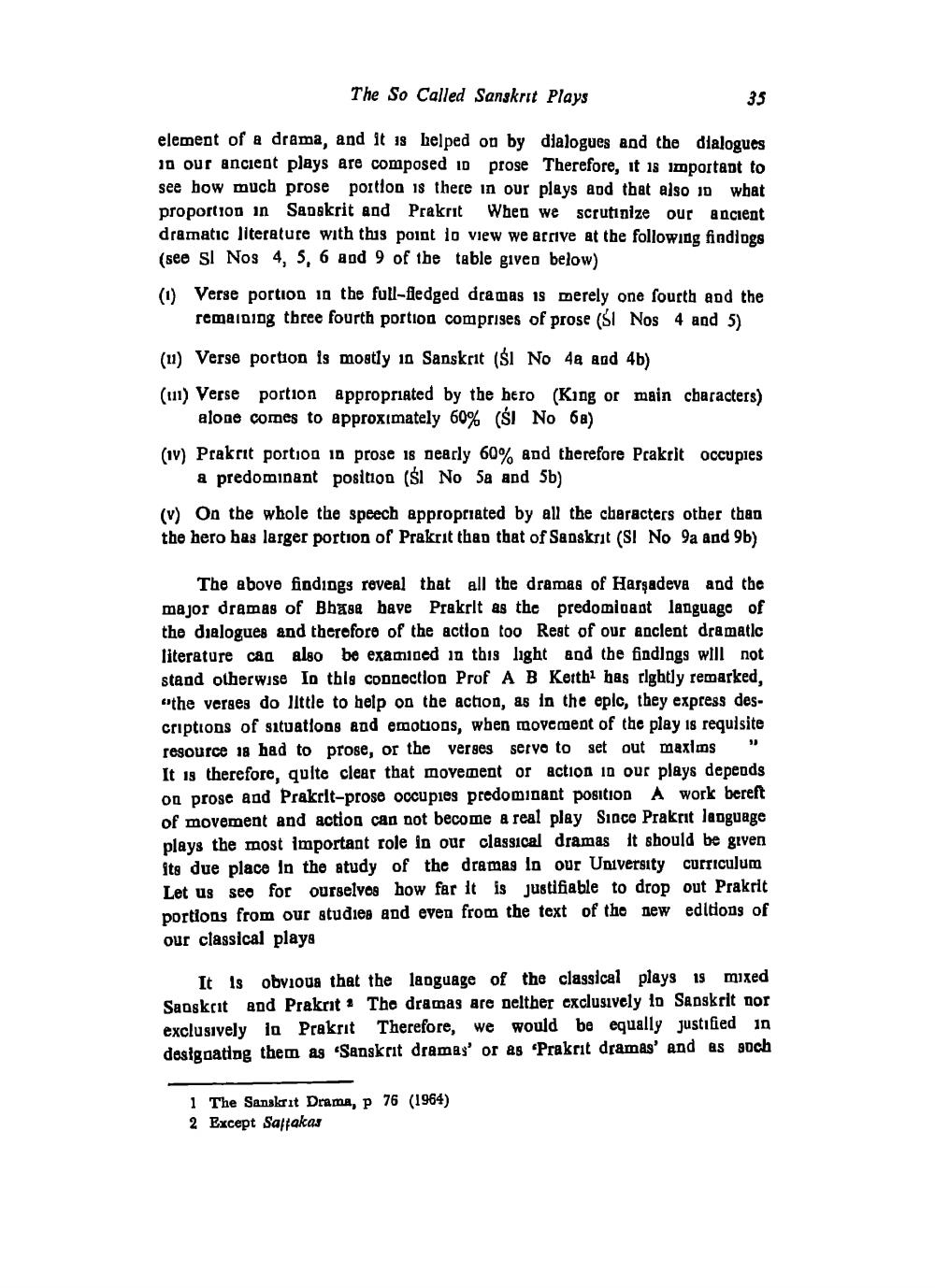________________
The So Called Sanskrit Plays
element of a drama, and it is helped on by dialogues and the dialogues in our ancient plays are composed in prose Therefore, it is important to see how much prose portion is there in our plays and that also in what proportion in Sanskrit and Prakrit When we scrutinize our ancient dramatic literature with this point in view we arrive at the following findings (see Sl Nos 4, 5, 6 and 9 of the table given below)
35
(1) Verse portion in the full-fledged dramas is merely one fourth and the remaining three fourth portion comprises of prose (Sl Nos 4 and 5)
(1) Verse portion is mostly in Sanskrit (ŠI No 4a and 4b)
(u) Verse portion appropriated by the hero (King or main characters) alone comes to approximately 60% (ŠI No 68)
(IV) Prakrit portion in prose is nearly 60% and therefore Prakrit occupies a predominant position (Sl No Sa and 5b)
(v) On the whole the speech appropriated by all the characters other than the hero has larger portion of Prakrit than that of Sanskrit (SI No 9a and 9b)
The above findings reveal that all the dramas of Harşadeva and the major dramas of Bhasa have Prakrit as the predominant language of the dialogues and therefore of the action too Rest of our anclent dramatic literature can also be examined in this light and the findings will not stand otherwise In this connection Prof A B Keith has rightly remarked, "the verses do little to help on the action, as in the epic, they express descriptions of situations and emotions, when movement of the play is requisite resource 18 had to prose, or the verses serve to set out maxims
33
It is therefore, quite clear that movement or action in our plays depends on prose and Prakrit-prose occupies predominant position A work bereft of movement and action can not become a real play Since Prakrit language plays the most important role in our classical dramas it should be given its due place in the study of the dramas in our University curriculum Let us see for ourselves how far it is justifiable to drop out Prakrit portions from our studies and even from the text of the new editions of our classical plays
It is obvious that the language of the classical plays 15 Sanskrit and Prakrit The dramas are nelther exclusively in Sanskrit nor exclusively in Prakrit Therefore, we would be equally justified in designating them as 'Sanskrit dramas' or as Prakrit dramas' and as such
1 The Sanskrit Drama, p 76 (1964)
2 Except Saffakas




